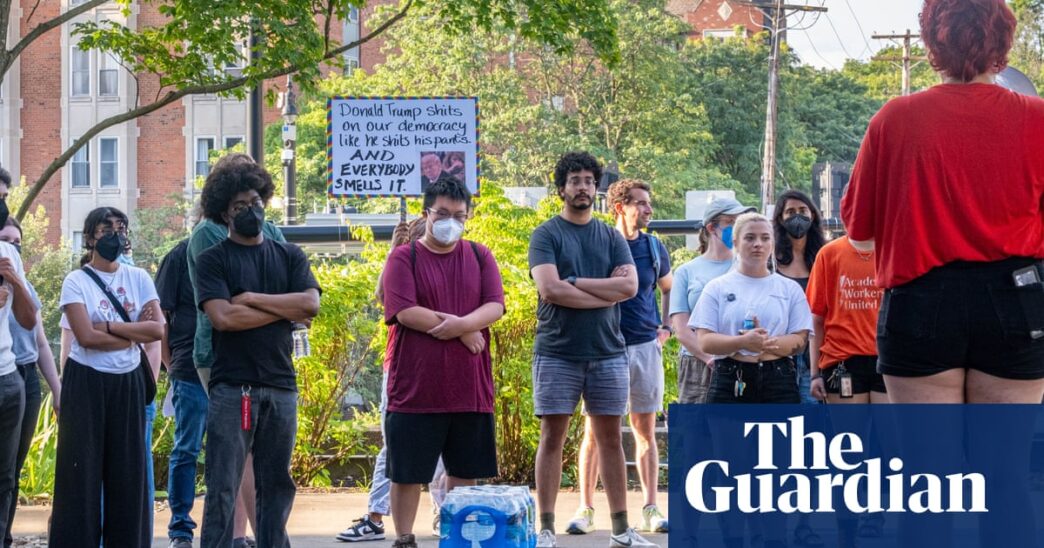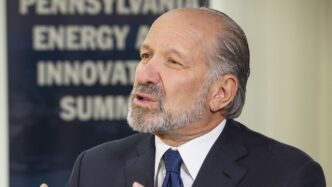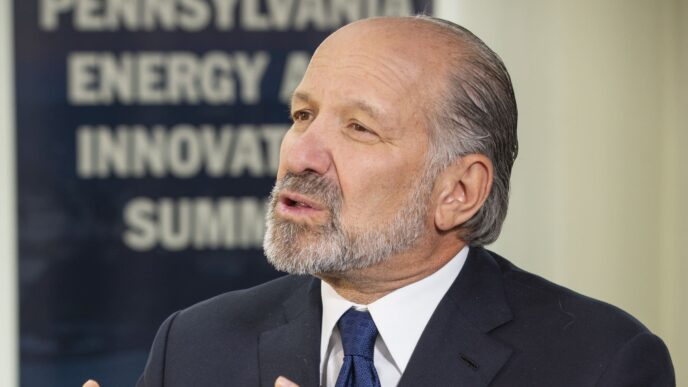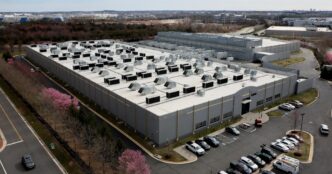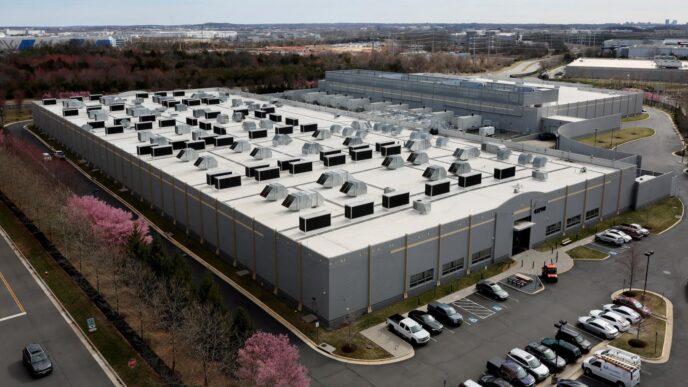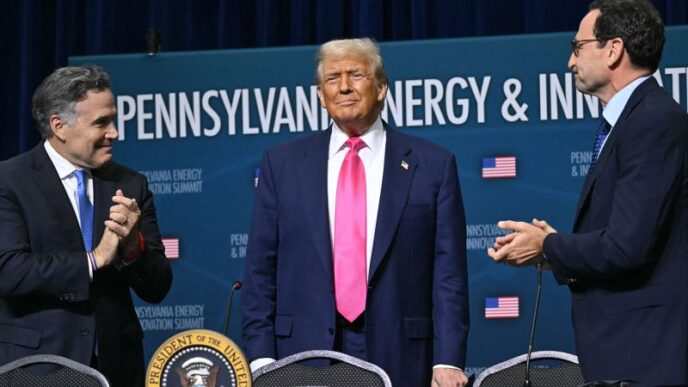Donald Trump sparked controversy Tuesday at Pittsburgh’s Pennsylvania Energy and Innovation Summit by touting $70 billion in AI and fossil fuel investments — drawing ire from environmentalists.
Trump blamed renewable energy for AI’s power needs. He said wind energy “just doesn’t work” and called it “intermittent” with “a lot of problems.”
The summit, co-hosted by GOP Senator Dave McCormick, also saw 20 tech and energy firms pledge over $92 billion for AI projects in Pennsylvania. The pitch: make the state a top AI hub fueled by fossil fuels, not renewables.
“We’re here today because we believe that America’s destiny is to dominate every industry and be the first in every technology, and that includes being the world’s number one superpower in artificial intelligence,” Trump declared.
“Today’s commitments are ensuring that the future is going to be designed, built and made right here in Pennsylvania and right here in—birch bargain, I have to say right here in the United States of America.”
“The new AI won’t be powered by wind, because it doesn’t work. I hate to say it just doesn’t work. It’s rather intermittent. You don’t want it, it causes a lot of problems.”
Environmentalists slammed the event and new investments for locking AI growth to dirty energy. Hilary Flint from the Center for Oil and Gas Organizing called out the negative impact on local communities and climate, pointing to higher utility bills, contaminated water, and poor air quality.
They also criticized the exclusion of public interest groups from the summit.
This comes weeks after a GOP-backed budget bill rolled back green energy tax credits, making renewable-powered AI data centers pricier and less viable. Tech leaders like Microsoft’s Satya Nadella and OpenAI’s Sam Altman have publicly stressed clean energy’s importance for scaling AI affordably.
Major tech companies like Google and Meta invest heavily in wind and solar for data centers. Meanwhile, fossil fuel lobbyists, such as American Petroleum Institute president Mike Sommers—also at the summit—pushed for the green credit rollbacks.
The summit downplayed the massive energy demand AI data centers will create. The International Energy Agency warns AI data processing will soon consume more power in the U.S. than heavy industries combined.
Jess Conard, Appalachia director at Beyond Plastics, condemned the fossil-fueled approach:
“Political leaders should be investing their time meeting with frontline communities, environmental scientists and renewable energy leaders and using their political muscle to create a just transition to renewable energy — not attending summits that double down on old, dirty energy.”
“Fossil fuels aren’t progress, no matter how you try to rebrand them.”
The event also sidestepped rising concerns about AI security and privacy. Recent lawsuits from The New York Times and authors accuse OpenAI and Microsoft of copyright infringement. OpenAI also faces criticism for reported labor abuses. Both companies deny these claims.
Public Citizen’s Tyson Slocum called Trump’s AI agenda a win for corporations over people.
“Trump’s radical AI plan is yet another example of the president siding with powerful corporations ahead of the American people.”
This summit marks a clear push to expand AI using fossil fuels in Pennsylvania — setting the stage for a fierce clash over the future of clean energy and AI growth.

